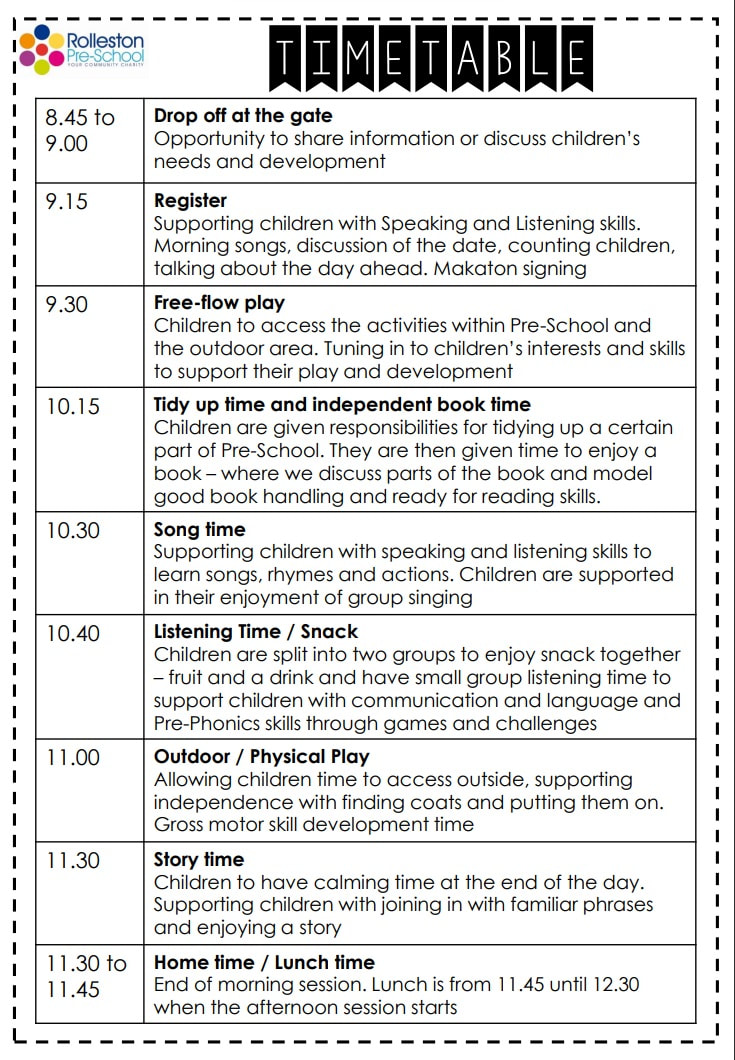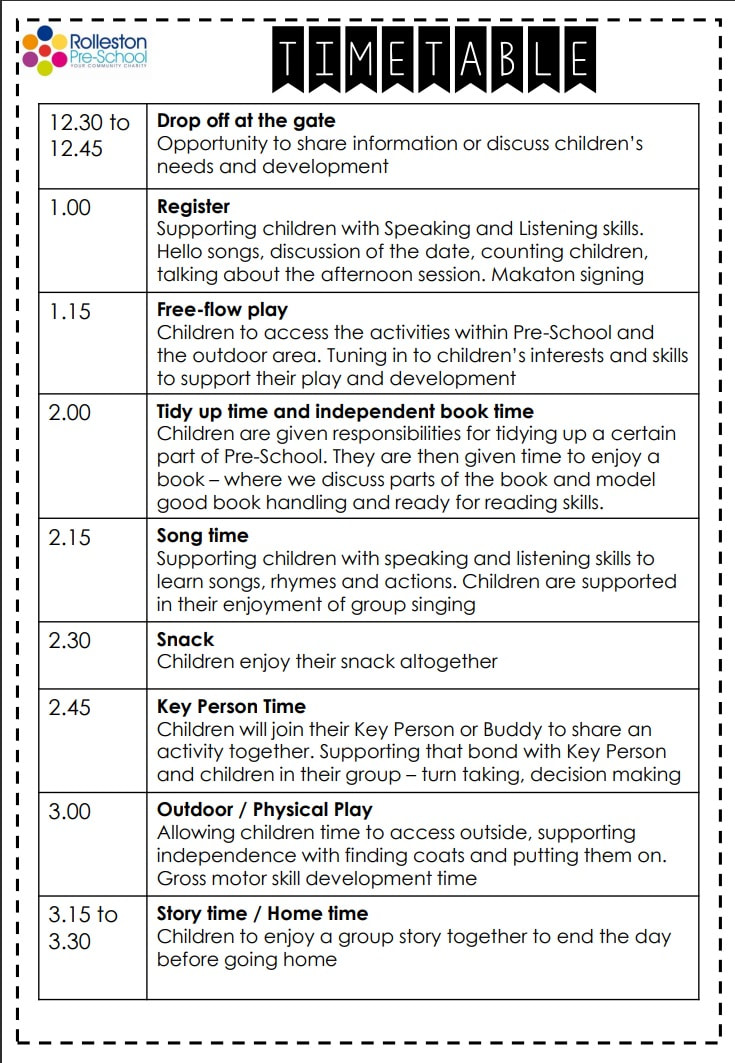Learning...
Development & Learning
Children start to learn about the world around them from the moment they are born. The care and education offered by Rolleston Pre-School helps children to continue to do this by providing all of the children with interesting activities that are appropriate for their age and stage of development.
Pre-School recognises the Early Years Foundation Stage (EYFS). This is a stage of children’s development from birth to the end of their first (Reception) year in school. The EYFS Framework describes how early years practitioners should work with children and their families to support their development and learning. It describes how your child should be kept safe and cared for and how all concerned can make sure that your child achieves the most they can in their earliest years of life. More information can be found here, or in Pre-School.
The Importance of Play
There is no division between play and work in a young child’s mind. Whatever they are doing, the child is learning. Play is nature’s way of helping children to establish deep roots of understanding about themselves, their world and each other.
Our Pre-School is not simply a paradise of toys. Our play is carefully planned and structured so that all six areas of learning are included. There is provision for progression and we ensure that the children move forward at their own rate.
Children start to learn about the world around them from the moment they are born. The care and education offered by Rolleston Pre-School helps children to continue to do this by providing all of the children with interesting activities that are appropriate for their age and stage of development.
Pre-School recognises the Early Years Foundation Stage (EYFS). This is a stage of children’s development from birth to the end of their first (Reception) year in school. The EYFS Framework describes how early years practitioners should work with children and their families to support their development and learning. It describes how your child should be kept safe and cared for and how all concerned can make sure that your child achieves the most they can in their earliest years of life. More information can be found here, or in Pre-School.
The Importance of Play
There is no division between play and work in a young child’s mind. Whatever they are doing, the child is learning. Play is nature’s way of helping children to establish deep roots of understanding about themselves, their world and each other.
Our Pre-School is not simply a paradise of toys. Our play is carefully planned and structured so that all six areas of learning are included. There is provision for progression and we ensure that the children move forward at their own rate.


